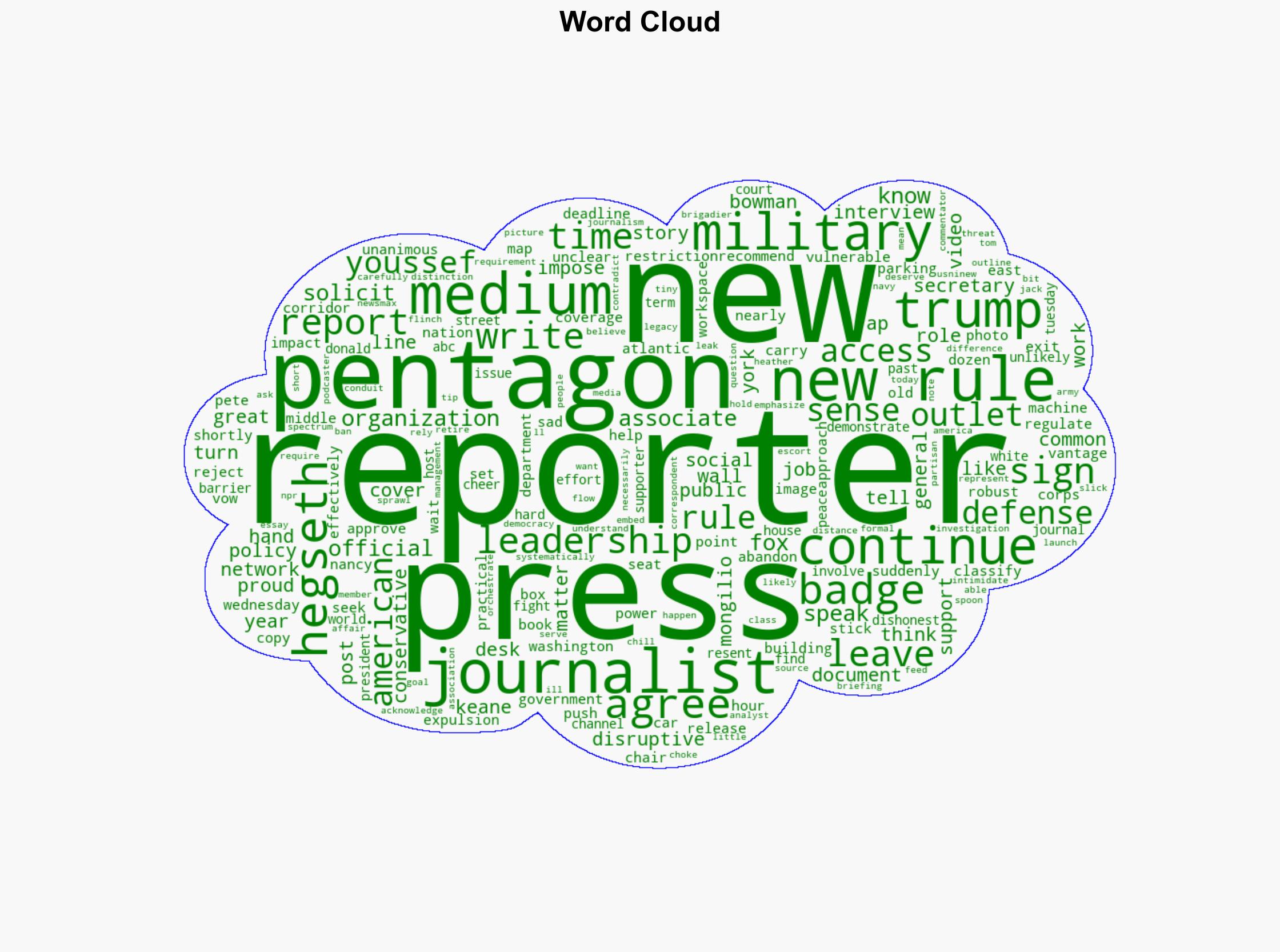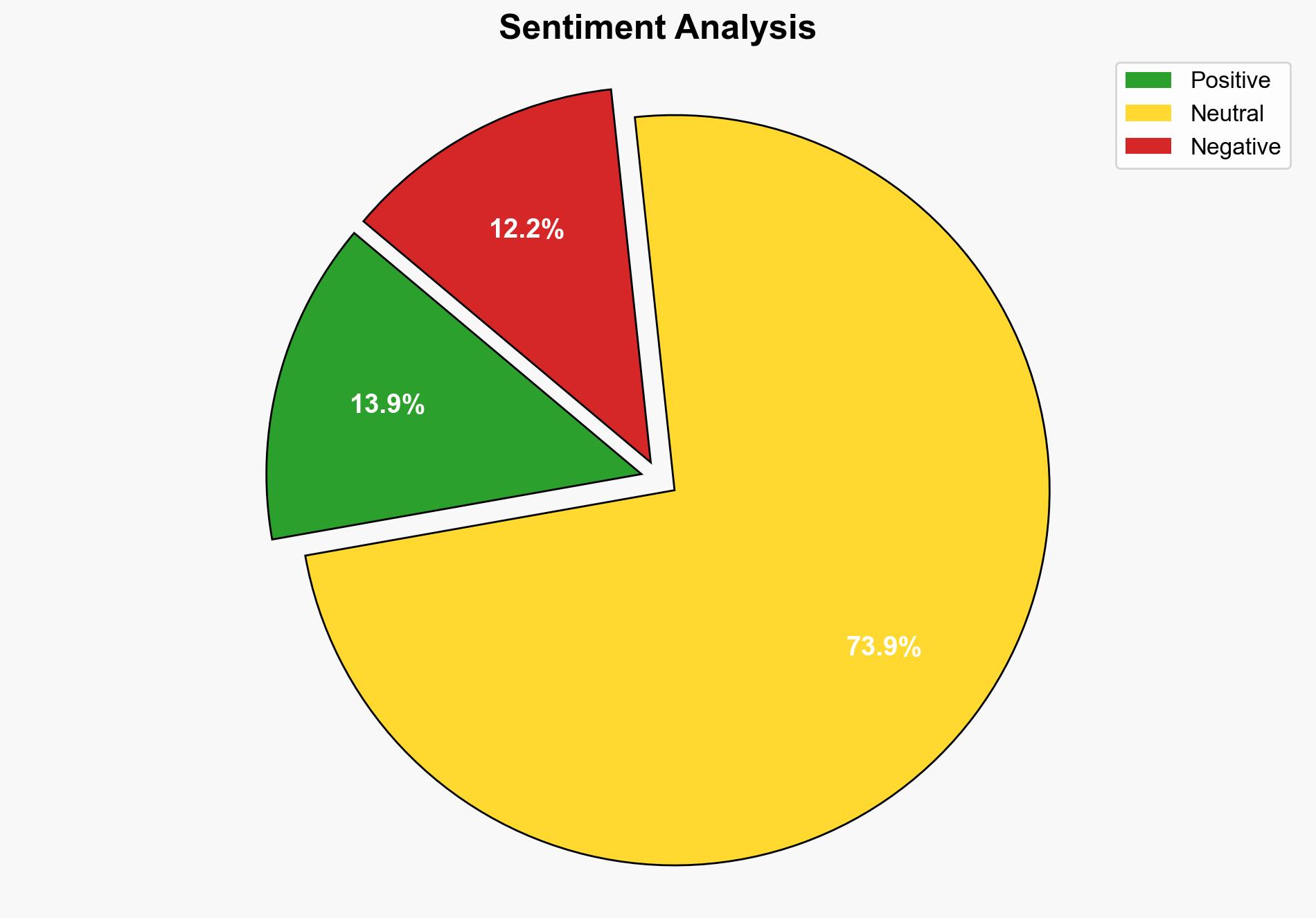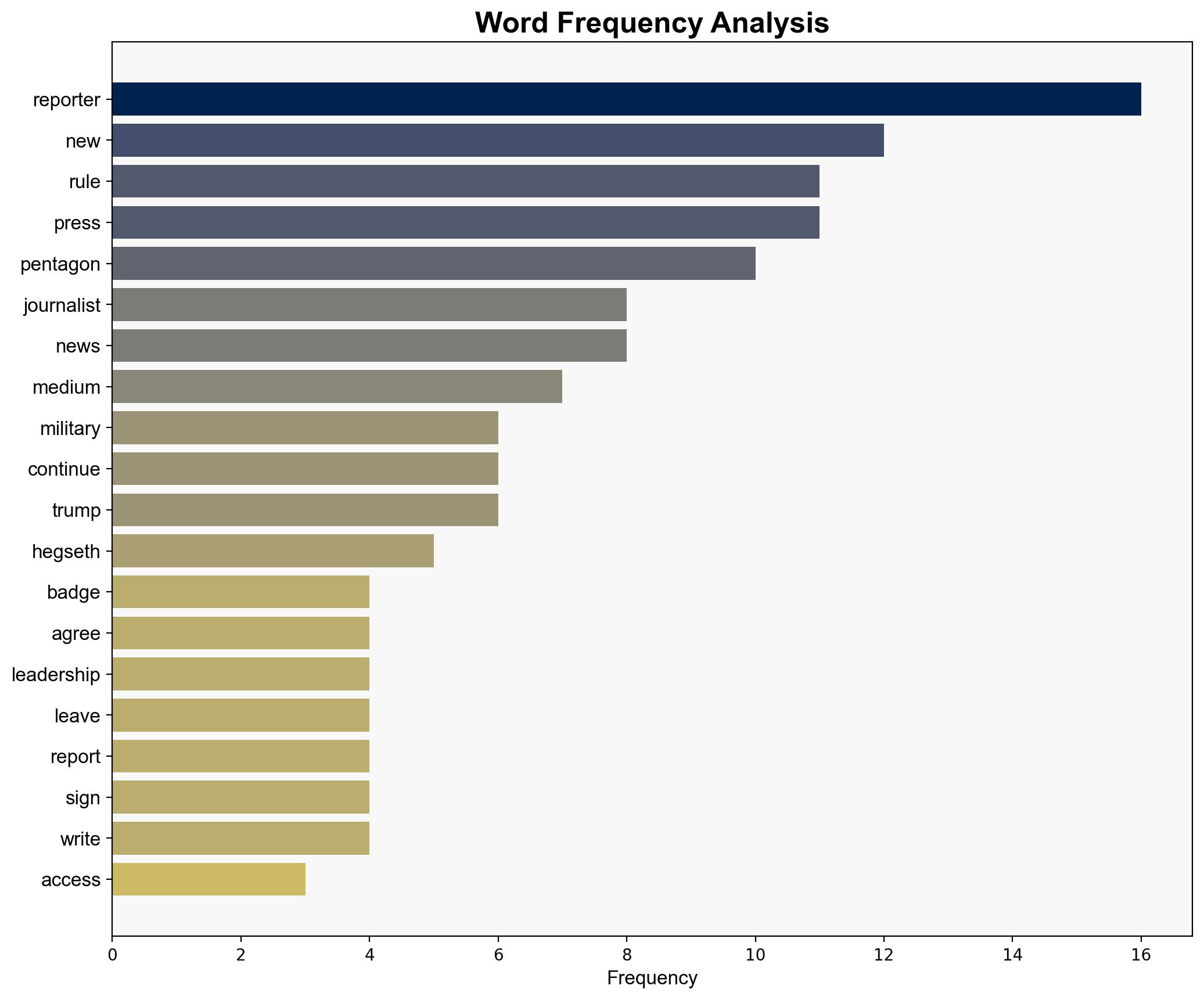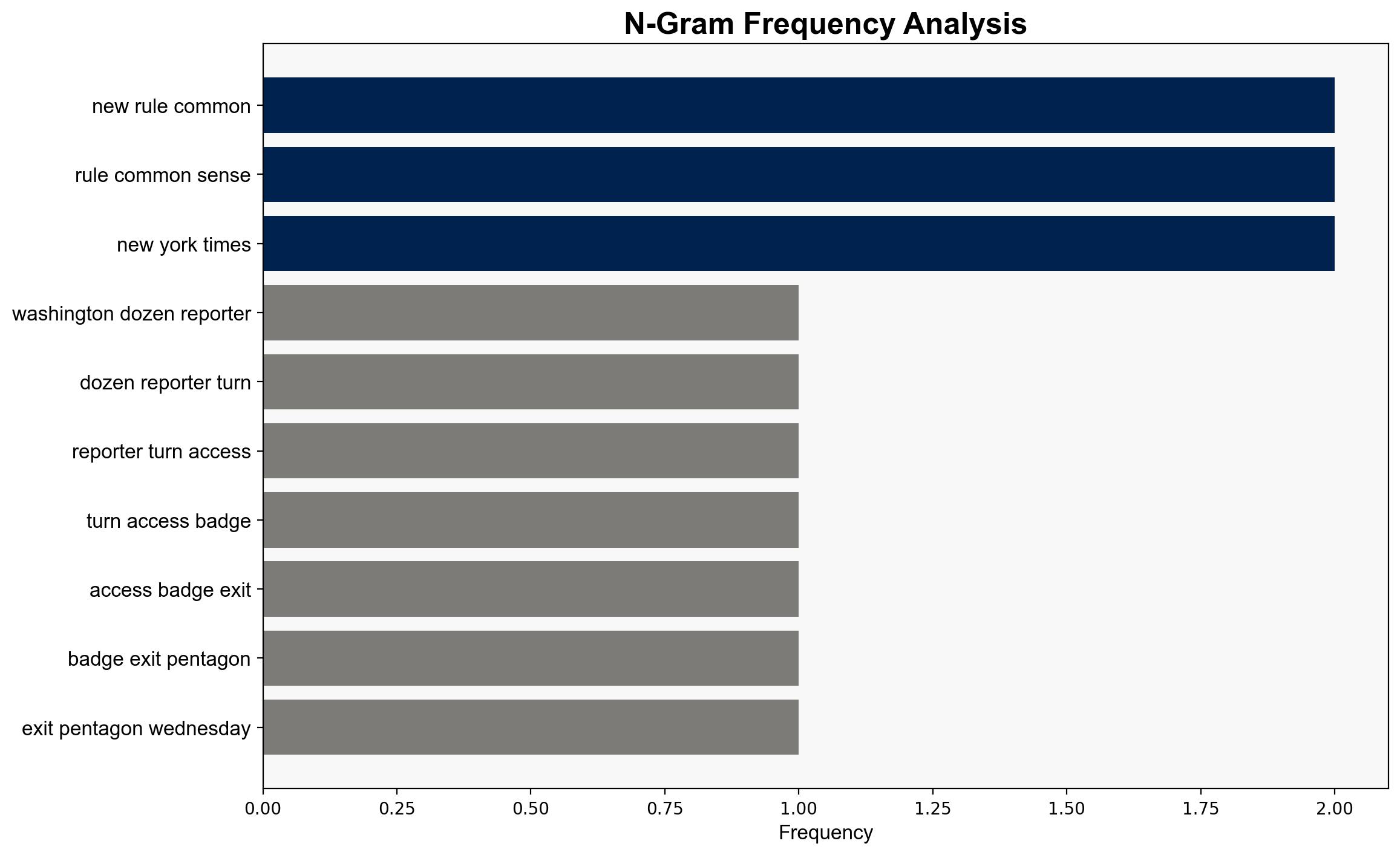Journalists turn in access badges exit Pentagon rather than agree to new reporting rules – Roanoke Times
Published on: 2025-10-16
Intelligence Report: Journalists turn in access badges exit Pentagon rather than agree to new reporting rules – Roanoke Times
1. BLUF (Bottom Line Up Front)
The imposition of new reporting rules by the Pentagon, leading to journalists relinquishing their access badges, suggests a significant shift in military-media relations. The most supported hypothesis is that these rules are intended to control the narrative and limit media scrutiny, potentially impacting public transparency. Confidence level: Moderate. Recommended action: Monitor media coverage and Pentagon communications for shifts in narrative control and transparency.
2. Competing Hypotheses
1. **Control Hypothesis**: The new rules are designed to limit media access and control the narrative surrounding military operations, reducing potential criticism and maintaining a favorable public image.
2. **Security Hypothesis**: The rules are primarily intended to enhance security by preventing leaks of sensitive information, thereby protecting national security interests.
Using the Analysis of Competing Hypotheses (ACH) 2.0, the Control Hypothesis is better supported due to the near-unanimous rejection by media outlets and the historical context of strained relations between the current administration and the press.
3. Key Assumptions and Red Flags
– **Assumptions**: The Control Hypothesis assumes that the primary intent is narrative control rather than security. The Security Hypothesis assumes that leaks are a significant threat necessitating such measures.
– **Red Flags**: The lack of specific examples of security breaches justifying the new rules raises questions about their true intent. The absence of engagement with media representatives in formulating the rules is also concerning.
4. Implications and Strategic Risks
The new rules could lead to reduced transparency and accountability, affecting public trust in military operations. This may also escalate tensions between the media and the government, potentially leading to legal challenges and further polarization. The reliance on controlled narratives could undermine democratic principles and limit informed public discourse.
5. Recommendations and Outlook
- **Monitor**: Continuously track changes in Pentagon communications and media coverage to assess shifts in narrative control.
- **Engage**: Encourage dialogue between media organizations and the Pentagon to address concerns and find a balanced approach to security and transparency.
- **Scenario Projections**:
– **Best Case**: Rules are revised to balance security and transparency, restoring media access and public trust.
– **Worst Case**: Increased restrictions lead to legal battles and further erosion of press freedoms.
– **Most Likely**: Ongoing tension with gradual adjustments to the rules as pressure mounts from media and public advocacy groups.
6. Key Individuals and Entities
– Pete Hegseth
– Donald Trump
– Nancy Youssef
– Heather Mongilio
– Tom Bowman
– Jack Keane
7. Thematic Tags
national security threats, media relations, transparency, public trust, narrative control




